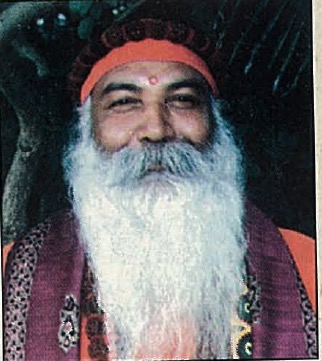BY SWAMI PRAGYANAND
Sanatana Dharma, today known as Hindu Dharma, the eternal religion, is an integration of nature and scientific principles. Being a part of nature itself, its nature is sanatana–eternal. Dharma is synonymous with prakriti, or primal nature. Dharma is the nature of individuals like salt’s salinity, sugar’s sweetness and the bitterness of neem. The nature of dharma is to be humane. Animal nature is pashuta (bestial). Dharma is a way of life. It is mental discipline. It relates to life in its entirety.
Our sages, saints and biologists have proved that God created two categories of animals–vegetarians and nonvegetarians–each with unique characteristics from birth. Vegetarians are born with open eyes; meat-eaters with closed eyes. Puppy dogs’ eyes open days after birth. Vegetarians have small teeth to chew vegetables. Meat-eaters have large teeth to grab, rip and chew meat. Dogs, cats and lions must carry prey with their teeth. Nails also distinguish vegetarians and meat-eaters. Vegetarians have small nails, whereas meat-eater animals have big, sharp claws to tear their prey. Vegetarians have long intestines. They eat fibrous vegetables. This kind of food is digested quickly, but meat residues remain there for seven and more days. Meat-eaters have short intestines. Vegetarian animals drink water with the lips, whereas meat-eaters use their tongue. Vegetarians perspire through pores in the skin; meat-eaters cool themselves through their tongue. Dogs reject certain human food, like honey which comes from flowers. Even animals understand what to eat and what not to eat. The elephant, which is very powerful, is a vegetarian, but the lion is a meat-eater. When a vegetarian becomes a meat-eater, that goes against nature. It is also leads to mental perversion. According to one’s food so becomes one’s mind, and the liquids you drink affect your speech. So, human beings have become more degenerate than dogs because they eat meat, which is dog food, but reject human food. All human beings are born pure vegetarians. Nonvegetarianness is thrust on him or her. People in ancient times lived on fruits, roots and ate greens and vegetables. But when animals died in forest fires they got roasted, and human beings started eating them and became nonvegetarians. But it is not the food of civilized peoples.
All communities, from the Middle East to Tibet, dispose of dead bodies by cremation or burial, but always away from the city, not downtown. Yet human beings have made their own stomachs the mobile mortuary, the grave yard, the cemetary for dead goats, cocks, pigs and other animals, inviting fatal diseases like cancer. And if ghosts, lower astral spirits, earthbound souls come to grave-yards, will they not also come to meat-eaters?
The entire approach and direction of Sanatana Dharma is based on understanding of the three principles of primal nature which manifest in the temperament of man: the quality of sattva, or goodness and purity, rajas, or passionate activity and tamas, inertia and darkness. Meat-eating leads to darkness of mind, thoughts, vision and action. It stimulates everything that is against the tenets of Hindu Dharma. The Gita advocates that food should be tasteful, juicy, stable, qualitative and good looking. It should increase age, good mind, physical strength, strength of sense, health, physical and mental happiness and brotherly feelings. This kind of food is sattvic and preferred by people with pious minds. In the Yajur Veda we find a prayer, “May our sons, animals, cows and horses be protected from violence-caused death.” The great poet saint Tulsidas said, “The highest righteousness and the law of scripture is nonviolence… Mercy–compassion–is the root of righteousness, and the root of sin is injurious intention.” But we are not merciful; we kill chickens, goats, etc., innocent beings every day, just to fill our bellies.
No religion preaches violence. Jainism exhorts, “nonviolence is the highest religion.” Likewise, one of the ten commandments of the Christian Bible is “Thou shall not kill.” It is evident from this that Christanity is also not in favor of meat-eating. The Ramayana, says, “There is no dharma like benefitting others, and no sin like giving agony to others.” It is better to follow the Ramayana in practice rather than just ritually reading it. The definition of religion is that what is not favorable to one’s own self should not be done to others. We do not like our children to be hurt. Then what right do we have to cause pain to the children of other creatures? Kindness is the only religion. Otherwise we are just demons and devils–man in appearance, but animal in nature–of human form but animal conduct.
Vegetarianism is natural, based on a universal truth. Ultimately, nature is beyond or above human capacity to create, whereas distortions and perversions are manmade. Hindu dharma, the natural universal law of righteousness, is beyond human actions. It is eternal like God Almighty. Anyone against nature is distorted, and their religion is not religion at all. And those sects in which meat eating is prevalent are man made, having a beginning and an end.
Throughout the world, people are realizing that meat-eating cannot be justified on any grounds. So, let not Hindus, wherever they are, commit the sin of distorting Hinduism with the fallacy and misconception that it rationalizes meat-eating as modern and progressive. Hinduism is the best means of achieving the highest progressiveness. It needs to be practiced with faith and consistency. Vegetarianism is an integral aspect of it. There is no basic moral or ethical sanction for meat-eating, and certainly no sanction for it in the philosophy of Hinduism.
SWAMI PRAGYANAND, 51,based at Pragya Dham, New Delhi, has been teaching Hinduism throughout the world for over a decade and is responsible for inspiring thousands to become vegetarians.


